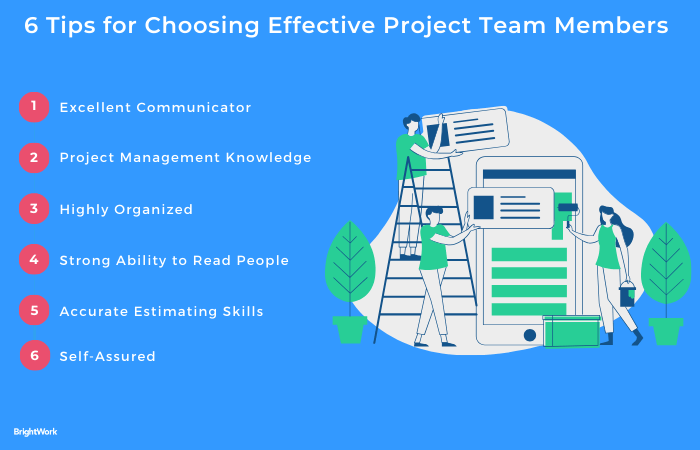A project is only as successful as the people behind it. While leaders often choose people for project teams simply based on their bandwidth or specialized knowledge, this is not necessarily the best way to go about team selection.
There are a number of specific skills leaders must look for, indicating who can add to the team and collaborate well with others.
Building an Effective Team
Even those employees with the strongest skills typically require training to shine as a project team member.
Simply assuming people already have all the necessary skill sets or that they’ll quickly observe others and catch on is not an effective approach to team management.
Companies must create a management culture that supports continuous learning to achieve the best project goals.
6 Criteria For Selecting Team Members
Companies should strive to have project team members embody each of the following six characteristics.
1. Effective Communicator
Project team members work with individuals from diverse backgrounds across all levels of the organization.
As a result, these project management professionals must have the ability to communicate with a number of different audiences effectively.
Poor communication can make or break the success of a project, so this is essential.
2. Basic Project Management Knowledge
While team members don’t have to be experts on every tactic, tool, and term, having a basic knowledge of project management fundamentals gives them a solid foundation to work with in achieving project objectives.
3. Highly Organized
Mass chaos and successful projects don’t mix. A project team member must be extremely organized so they know what is exactly going on with each step of the project at all times.
Effective project collaboration relies on the organization. It enables these professionals to use available management tools and techniques to stay organized, even when under significant stress.
4. Strong Ability to Read People
The best project team members are also solid leaders who know how to motivate people. They’re able to create a vision for both project stakeholders and their teams to look to for inspiration.
When crunch time begins, they know what it takes to motivate people to do the job.
5. Accurate Estimating Skills
The project manager relies on the right team members to provide estimates for their individual tasks.
It’s important for estimates to be accurate because they have the potential to throw the entire project timeline off.
One delayed task can result in a domino effect, ultimately causing everyone to miss key deadlines. This is where strong time management and decision-making skills come into play.
6. Self-Assured
It’s important for different types of teams to be able to stand their ground politely but firmly when faced with opposition from others in the organization.
These professionals need to clearly convey their needs and stand up for the best interests of the project when faced with roadblocks.
Editor’s Note: This post was originally published in July 2014 and has been updated for freshness, accuracy, and comprehensiveness.
Get the Collaborative Project Management Handbook
Improve your leadership, collaboration, and project management skills with “Collaborative Project Management: A Handbook” written by Éamonn McGuinness.


